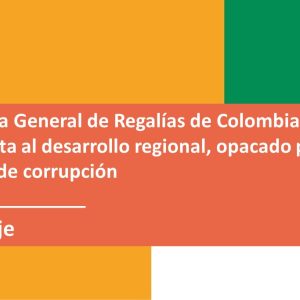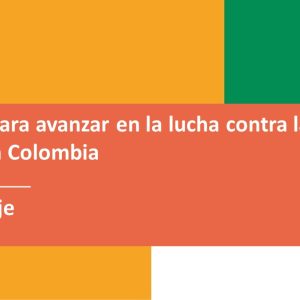By: Mónica Osorio. OCASA Corporation
Cumaral is located in the Orinoco region, in the department of Meta. The municipality’s economic base has been agricultural production and livestock. However, the abundant existence of hydrocarbons for exploitation, as well as the oil boom in Meta, has promoted a perspective within the municipality that links the economic development of the municipality to the resources obtained through the exploitation of hydrocarbons.
However, milestones such as the result of the popular consultation held in Cajamarca have shown that civil society is aware of the harmful short and long term impacts resulting from all the dynamics and effects of resource exploitation. In the case of Cumaral, its mayor Miguel Antonio Caro Blanco led the initiative of the popular consultation in the municipality on the issue of oil exploitation.
The above, was supported through Decree 35 of March 2017 which argued that the Llanos 69 Project (commercial alliance between the National Hydrocarbons Agency for the exploration and exploitation of hydrocarbons), will produce negative effects on the river resource and biodiversity of the municipality, in addition to placing the region in a situation of high seismic risk (Espectador; Dos Orillas, 2017).
For this reason, the citizens of Cumaral will respond on June 4 to the question “Do you agree Cumaral citizen that within the jurisdiction of the Municipality of Cumaral, Meta, seismic exploration, exploratory drilling and hydrocarbon production activities are executed?” (Alcaldía Municipal de Cumaral, pp. 3, 2017) in order to determine the future focus that the economy and development of its territory will have, continue with livestock production or be based on oil exploitation.
The popular consultation, as a right of access to citizen participation in environmental matters, is a fact of great importance since it gives citizens the possibility of deciding on the future of their own territory.
Opening spaces for discussion on the relevance of the exploitation of natural resources allows citizens to know and be aware of the impact that the execution of this type of projects has on water and ecosystems. Thus, the communities identify problems associated with the presence of extractive industries and seek to influence to prevent future socio-environmental conflicts.
A few days before the popular consultation in Cumaral, citizens, delegations of social movements and organizations from all over the country, have met in the municipality to carry out caravans, presentations and activities, in order to disseminate information about the commitment of citizens to jointly define the viability of these projects in economic and environmental terms. The exercise is an example for the whole country, which shows the communities’ rejection of hydrocarbon exploitation in the Piedemonte llanero, the Eastern Cordillera and the protected areas of the territory.
- Mayor’s Office of Cumaral. Decree No. 35 March 24, 2017. Retrieved June 1, 2017 from: http://static.iris.net.co/sostenibilidad/upload/documents/dec1.pdf
- El Espectador, (2017). Cumaral se suma a las consultas populares .Retrieved June 1, 2017 from: http://www.elespectador.com/noticias/medio-ambiente/cumaral-se-suma-las-consultas-populares-articulo-688026
- Las Dos Orillas. Approved popular consultation to stop oil project in Cumaral. Retrieved June 1, 2017 from: https://www.las2orillas.co/aprobada-consulta-popular-frenar-proyecto-petrolero-cumaral/


